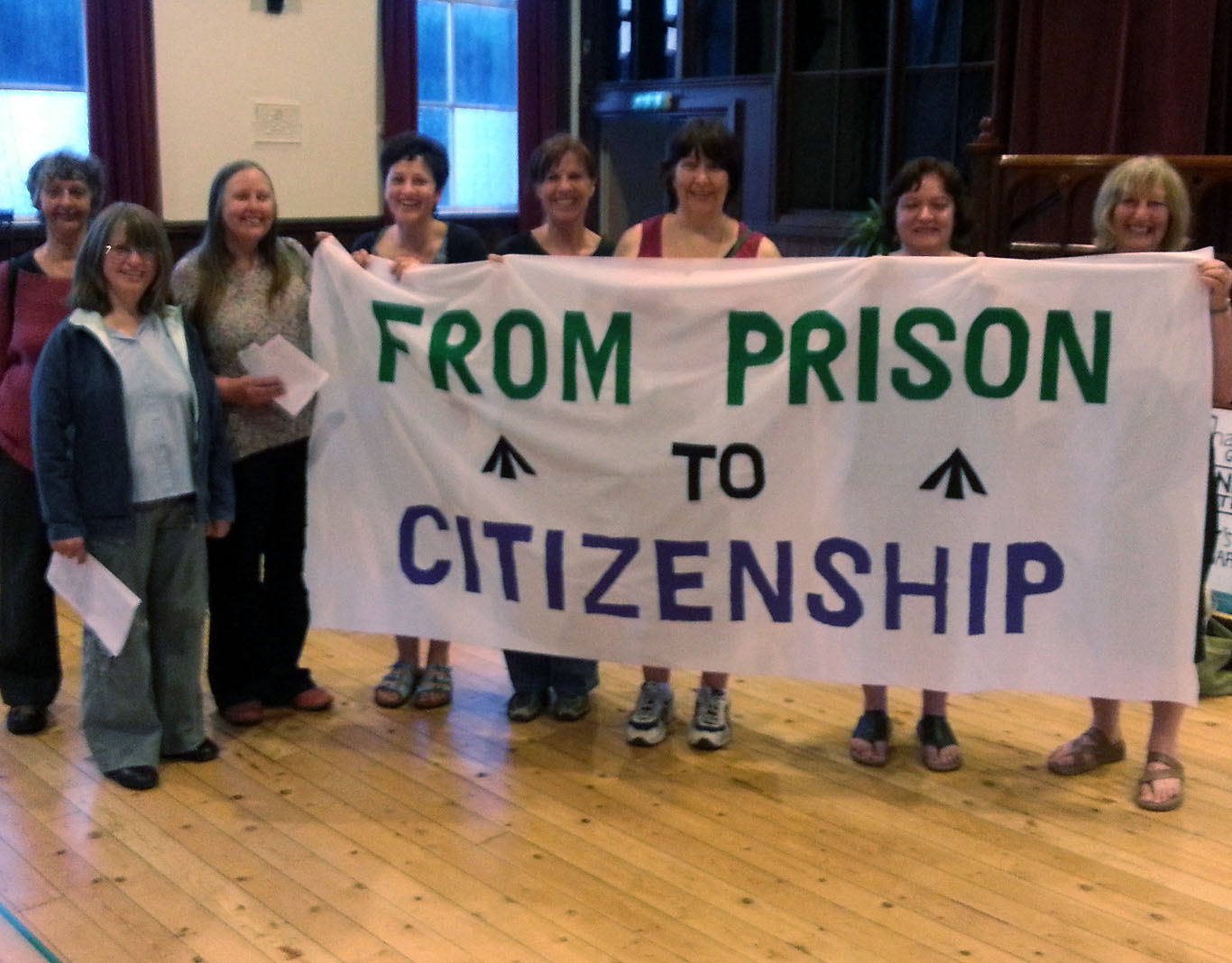Emily
2013
- Words
- Anthony Peter and Tim Benjamin
- Composer / Director
- Tim Benjamin
- Designer
- Lara Booth
- Music Director
- Antony Brannick

2013
“Concerning the Suffragette, Emily Wilding Davison, who died in June 1913 while protesting at Epsom, under the hoofs of the King’s horse...”
Told almost entirely through painstakingly-researched archive material including newspaper articles, Hansard, and private letters, Emilytells the harrowing story of Emily Davison's particular dedication and unique sacrifice to the Suffragette cause.
Alongside a cast of brilliant young professional singers, Radius Opera's production Emily transformed volunteer amateur singers into an army of Suffragettes, singing as the opera's chorus, and memorably taking on their fellow volunteer Policemen in a dramatic on-stage riot.
“No surrender...”
The opera begins with one of the consequences of Emily Davison's sacrifice and the Suffragette movement, the vote on the Representation Of The People Act, 1918, which finally emancipated women.
Emily then travels back in time, to show some of the protests in which Emily Davison took part, beginning with the occupation of a broom cupboard in the House of Commons on the night of the Census, and her deliberate arrest: meaning that a woman would be forever recorded dwelling in the House on that night.
Following a harrowing scene of force-feeding (juxtaposed with a dialogue between establishment figures - shocking, today), the first Act comes to a close with a re-enactment of the "Black Friday" riots outside Parliament, in which numerous Suffragettes were brutalised by the Police, apparently under the orders of the Home Secretary, Winston Churchill.
Act 2 begins with an autopsy and dismemberment of Emily Davison's body, carried out by a Doctor who then reappears for the bulk of Act 2, which takes place at the Epsom Derby, and provides an account of everyday life in 1913, and common views of women in general and the Suffragettes in particular. Constructed in large part from newspaper columns and adverts, the Doctor sells "Fat Cure", aided by an attractive model. Of course, the main excitement is the race itself, and the tragic events which unfolded therein.
Finally, we see Emily's body lying in a hospital bed, and after hearing some of the hate-mail which was sent to her there, we hear the moving last letter written to her by her mother - a letter which Emily, then in a coma, never saw.
The opera concludes, movingly and fittingly, with a General Election, in which both men and women cast their votes - accompanied by the ghost of Emily, who sings the words of a short poem by Davison herself.
“It brought the house down ... a tribute to the composer and the utterly convincing singers”
Seen and Heard
One of the unique aspects of Radius Opera's Emily production was the presence of a small army of volunteer amateurs, singing and acting alongside the professional cast of soloists. Deserving a special mention, they were:

“A gorgeous crescendo and a powerful epilogue ... They have created quite a feat”
Northern Soul
“An enchanting visual spectacle, with incredible voices and haunting, hypnotic music ... it even managed to get me to rethink opera”
Todmorden News